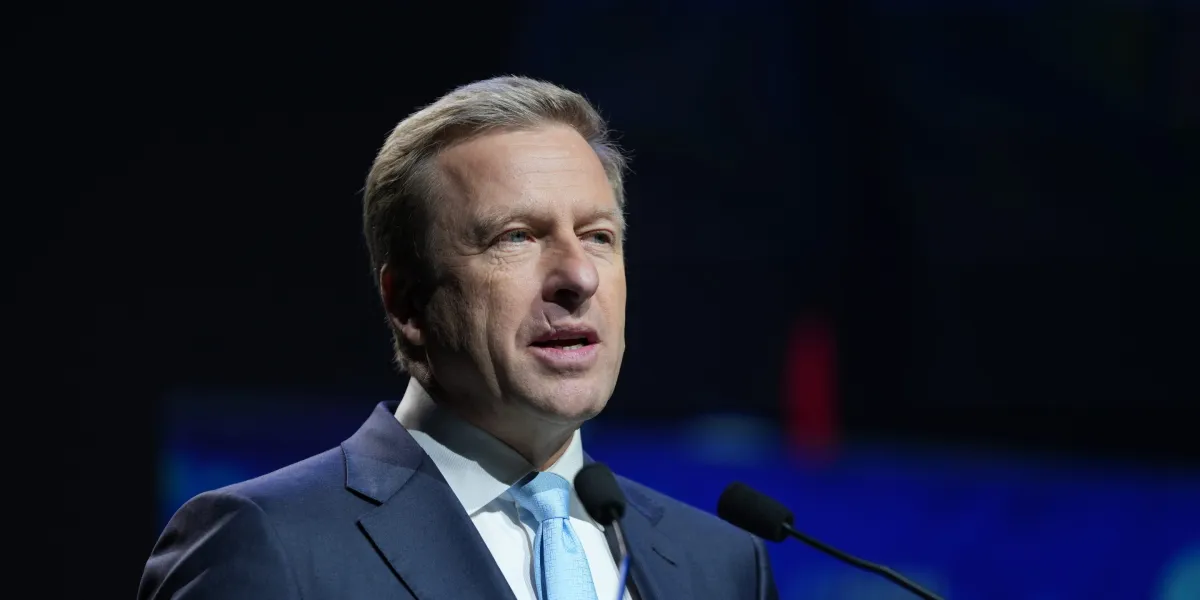
The bosses of Europe’s biggest carmakers will likely be sweating at the prospect of what a stunning Donald Trump election victory could mean for their already troubled sector. But for BMW, at least, the prospect of more trade wars may actually be a good thing.
Oliver Zipse, the CEO of BMW, sought to play down concerns about what a Trump presidency could mean for the automaker amid expectations that his administration would unleash wide-ranging tariffs on imports from Europe.
Trump targeted European producers in comments made the week before the November 5 election, giving a strong indication that fresh import tariffs would be introduced.
“They don’t take our cars. They don’t take our farm products. They sell millions and millions of cars in the United States. No, no, no, they are going to have to pay a big price.”
Goldman Sachs expects the Trump administration to implement tariffs on EU autos-related imports worth $80 billion, responsible for about 0.9% of EU exports. The bank has namechecked Volvo cars as facing the biggest profit headwinds from the move, followed by Mercedes, Porsche, BMW, and Volkswagen.
Shares in BMW declined 6.6% between markets closing on Tuesday and their closure on Wednesday, following a double whammy of Trump’s election and disappointing profits. Shares rebounded by 2.7% this morning. BMW’s German competitors Volkswagen, Mercedes-Benz, and Porsche also faced falling valuations on Wednesday.
BMW’s tariff ‘advantage’
Speaking to journalists following the company’s third-quarter earnings report, Zipse said BMW “rather have an advantage” over other carmakers because it has a “big footprint in the United States for the United States.”
“In this respect, we shouldn’t be too nervous about what might happen,” Zipse said.
“It might actually offer us a benefit.”
BMW makes its X5, X6, and X7 models in the U.S., while the X3 has just started production there. Deliveries in the U.S. declined 92% in the third quarter of 2024 compared with the same period in 2023.
The company produced 410,000 cars from its Spartanburg plant in South Carolina in 2023, with more than half being exported to 120 countries. Zipse suggested BMW is well-placed to pivot those models to U.S. customers to satisfy U.S. demand.
“There’s some natural cover-up against possible tariffs,” Zipse said.
The prospect of a frostier trading environment between the U.S. and Europe is likely to take a backseat to BMW’s ongoing struggles in China.
BMW’s pre-tax profits declined by 79.4% in the third quarter of 2024 compared with the same period in the previous year, having cut its guidance in September. The carmaker cited ongoing challenges with a massive recall caused by a faulty braking system.
However, it is in China where more existential threats persist.
BMW’s deliveries in China plunged 30% compared with the third quarter of 2023. The carmaker cited “the ongoing crisis in the real estate sector and a general downturn in domestic demand” as the key factors behind its decline in the country, as well as increased competition from domestic automakers and other foreign players.
While he was relatively sanguine about the prospect of fresh tariffs coming from the U.S., Zipse doubled down on his opposition to tariffs imposed by the EU on Chinese EVs, which will see some imports slapped with a 48% tariff.
“Our statement remains that these tariffs will see no winner,” Zipse said in the earnings call, arguing tariffs could lead to a trade war.

